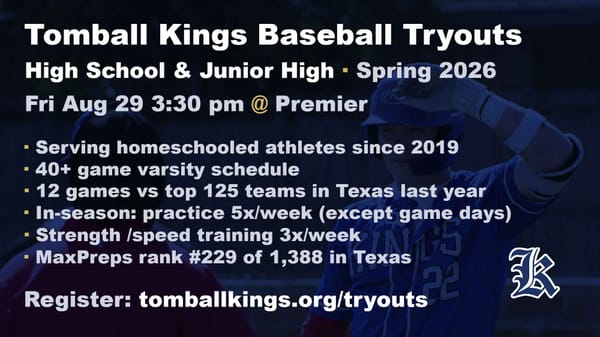Transfer portalism: a self-limiting mindset
Too many athletes are treating each season like a restart. But the deepest rewards of sports—and life—come from multi-season commitment. This post explores how long-term teamwork builds not just better players, but better people.

I recently spoke with someone deeply involved in NCAA Division I athletics. His program, in a so-called revenue sport, is bracing for up to 90% roster turnover next season.
Players are transferring out—frustrated with playing time or lured by other opportunities. New players are transferring in, hoping for a better shot. It’s a revolving door. And it's not just paperwork—it’s chaos.
Fights have broken out in the locker room. Teammates have shouted at one another to leave. The cohesion and culture that once made this program strong are disintegrating. And unsurprisingly, so is performance.
I call this mindset transfer portalism: the belief that the best solution to adversity is to leave and start over.
At the college level, it’s become endemic. But the problem isn’t confined to NCAA sports—it’s spreading into youth sports just as quickly.
You’ve probably heard versions of it:
- “Coach won’t let me play goalie. I’ll quit and find another team.”
- “That team is winning and we’re not. I’ll go there instead.”
- “Coach has me playing forward instead of point guard. I'm done.”
- “I’m batting eighth in the lineup. Time to switch clubs.”
Once upon a time, young athletes scorned this mentality. “Don’t take your ball and go home,” they’d say. “Stay and compete.” Many learned this resilience from parents. Others discovered it the hard way.
But today, transfer portalism teaches the opposite: avoid discomfort, switch teams, reset. It prioritizes short-term gain over long-term growth. And the damage goes far beyond sports.
Transfer portalism is not just a sports problem
The mindset bleeds into every area of life that requires sustained effort with others—marriage, parenting, entrepreneurship, business.
Teams are hard. So are relationships, co-founding a company, raising kids, or leading a staff. If your instinct is to flee at the first sign of difficulty, you’ll never experience the compounding rewards that only come through sticking it out.
Yes, life is seasonal. But teamwork is cumulative. The best rewards emerge only through multi-season dedication.
A challenging team situation is a gift
We’ve seen youth and high school teams bend over backward for players: waiving fees, covering tournaments, even paying for private training. Yet many of those athletes still walk away after a single season, chasing “greener pastures.”
That’s not a competitive mindset. It’s a consumer mindset dressed in athletic clothing.
And it hurts everyone—especially the athlete.
What’s lost when we quit too soon
We already know that team sports teach discipline, communication, and perseverance. But those lessons don’t happen in one season. In fact, the most important growth can’t happen that fast.
Over time—and only over time—athletes gain:
- Trust with teammates: a rhythm that borders on the intuitive.
- Leadership maturity: stepping up without being asked.
- Resilience: responding to hard seasons with grit, not flight.
- Tactical mastery: reading the game, adapting, elevating others.
- Cultural inheritance: becoming a steward of team values.
A freshman learning the ropes may one day become a captain. A quiet contributor may become the glue that holds the team together. But only if they stay.
Legacy is built over time
High school coaches love prep leagues for a reason: they know that when teammates stick together for years, the results are different. Better. Deeper.
Pitchers and catchers develop a near-telepathic connection. Fielders read each other’s movements. The team doesn’t just play together—it thinks together.
That doesn’t happen in tryouts. It happens in year three.
Transfer portalism starts over every season
Each year becomes a reset—new team, new culture, new hierarchy. The athlete is always a stranger. Always starting from scratch.
It’s not just unproductive. It’s anti-growth.
If a team can be a second home, transfer portalism builds houses but never lives in them. And eventually, no place ever feels like home.
Follow-through is the real signal
College recruiters, scholarship committees, employers—they all look for follow-through. Not just talent. Not just skill. But the ability to commit. To see something through. To contribute to something bigger than yourself.
That’s not proven in a highlight reel. It’s proven over multiple seasons.
The chapter is not the book
Each season is a chapter. But a great story takes more than one.
Transfer portalism confuses the two—and in doing so, it cuts athletes off from the most profound rewards of sport.
The goal isn’t to win every season. The goal is to grow through every season.
Stay. Fight. Earn your place. Build something. That’s how legacies are made.


